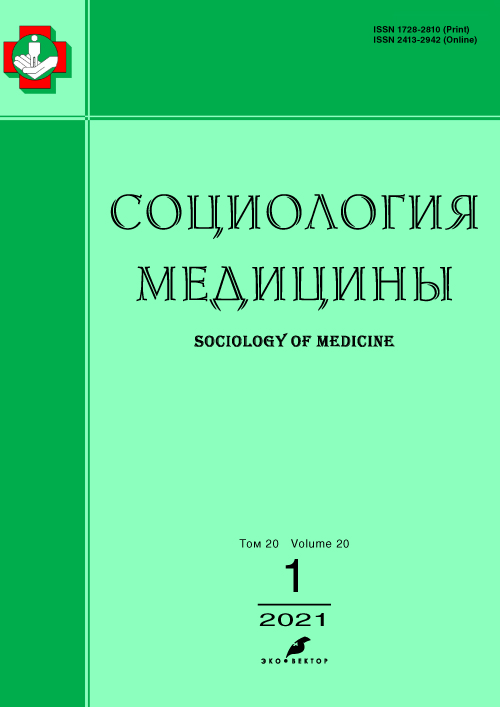Disease and fear as elements of pandemic
- 作者: Mettini E.1
-
隶属关系:
- Medical Research University N.I. Pirogov
- 期: 卷 20, 编号 1 (2021)
- 页面: 43-48
- 栏目: Articles
- URL: https://rjsocmed.com/1728-2810/article/view/100349
- DOI: https://doi.org/10.17816/1728-2810-20-1-45
- ID: 100349
如何引用文章
详细
The article discusses question how coronavirus infection causing a worldwide pandemic represents not only a threat to the health of the population but also leads to philosophical, psychological, and sociological speculations. The author intends to consider implications arising from a pandemic using artistic works written during a pandemic that have shaken bases of human life, human outlook, and attitude to life. Consequently, the author tries to explain attitude to pandemic from the standpoints of such concepts like “disease,” “health,” “fear,” and “hope” that can totally disrupt depths of human beings during the “plague.” The author paid attention to artistic works such as the “Decameron” by the Italian writer and thinker G. Boccaccio, “Plague” by A. Camus, and “A feast in time of plague” by A.S. Pushkin. Using these works and having as red thread of his inquiry isolation (repudiation of the world), the author defines what kinds of reaction can human have in the face of disease and, eventually, in the face of death because of sickness. The author considers that this approach, which lies at the intersection of sociology, psychology, and philosophy, can highlight some behavioral paradigms that contribute to comprehension of what happens in human outlook, mentality, and mind when a new phenomenon occurs, which is necessary to interiorize and make “ours” that, in turn, implies enhancement of stress tolerance of the population in emergency situation, as it happens during the COVID-19 pandemic.
全文:
作者简介
Emiliano Mettini
Medical Research University N.I. Pirogov
编辑信件的主要联系方式.
Email: mettini_e@rsmu.ru
ORCID iD: 0000-0002-3051-9730
SPIN 代码: 5521-9267
Master of Philosophi, PhD in Pedagogy
俄罗斯联邦, 1 Ostrovityanova str., Moscow, 117997参考
- Bokkachcho D. The Decameron. Moscow: AST; 2017. (In Russ).
- Egorova VI. Personification and depersonification – basic types of carnival in virtual reality. Sovremennye problemy nauki i obrazovaniya. 2012;(4):103-120. (In Russ).
- Kamyu A. The Plague. Moscow: AST; 2014. (In Russ).
- Kanetti E. Crowds and Power. Moscow: AST; 2015. (In Russ).
- Pushkin AS. Boris Godunov. Mozart and Salieri. Feast in Time of Plague. Moscow: EKSMO; 2019. (In Russ).
- Reshetnikov AV. Sociologiya mediciny. Moscow: Meditsina; 2002. (In Russ).
- Reshetnikov A, Prisyazhnaya N, Pavlov S, Vyatkina N. Perception of the COVID-19 Pandemic by Moscow Residents. Sotsiologicheskie issledovaniya. 2020(7):138-143. doi: 10.31857/s013216250009481-2 (In Russ)
- Tishchenko PD. Zdorov’e: filosofsko-antropologicheskii aspekt. In: Zdorov’e cheloveka, sotsiogumanitarnye i mediko-biologicheskie aspekty. Moscow: Izdatel’stvo Institut cheloveka Rossiiskoi akademii nauk; 2003
补充文件






